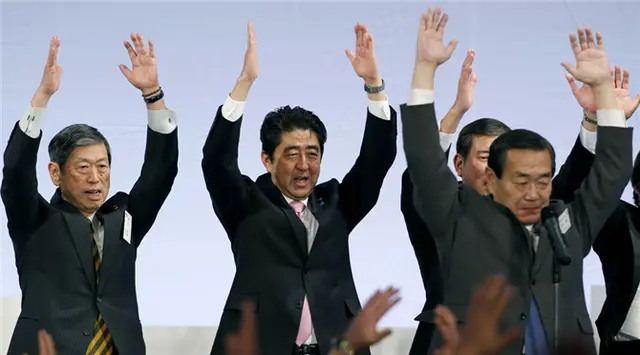Japanese Prime Minister Shinzo Abe's recent statement regarding his eagerness to amend the nation's constitution while he is in office, drew flak Thursday from a senior lawmaker from within the ruling coalition.
Yoshio Urushibara, chairman of Komeito's Central Secretariat, expressed concern that the prime minister's comments could be used by opposition parties against the ruling Liberal Democratic Party- led coalition to hamper its plans to consolidate power in the upper house following elections this summer.
"We are worried that Abe's eagerness could give opposition parties, now in disarray over their policies, a rallying point and that his comments could be exploited in the House of Councillors election this summer," Urushibara told a press briefing Thursday.
Urushibara voicing his concerns, follows the prime minister and president of the LDP telling parliament a day earlier that he plans to amend the constitution while he is in office.
Abe, whose second term in office will end in September 2018, has ramped up his intentions to amend the constitution recently, also stating on a local radio show that it was not just his but the LDP's long-held wish to see the constitution amended.
Abe needs both chambers of parliament onside to set about his amendment plans, that would see a key constitutional clause, instituted after WWII, adjusted to potentially increase the operational scope of Japan's Self-Defense Forces.
Under the current Supreme Law, Japan is prohibited from maintaining air, ground or sea forces with military potential and is prohibited from using force as a means of settling international disputes. A revision to the war-renouncing Article 9 of the constitution, however, could see Japan's forces operating more autonomously on global stages, a scenario that saw nationwide protests erupt at the end of last year, as the ruling bloc forced war-related bills through parliament.
While the the LDP and Komeito hold a two-thirds majority in the more powerful lower house of parliament they only have a majority in the 242-member upper house, and Abe will need support from its ally and possibly other parties to gain approval for his controversial amendment goal.
But the constitution also states that the majority of the public will also have to approve the amendment in a national referendum, with recent polls showing public reticence towards military expansion, as well as concern over the ethical behavior of senior LDP politicians and officials, following a series of highly-publicized scandals and gaffes.
 简体中文
简体中文

